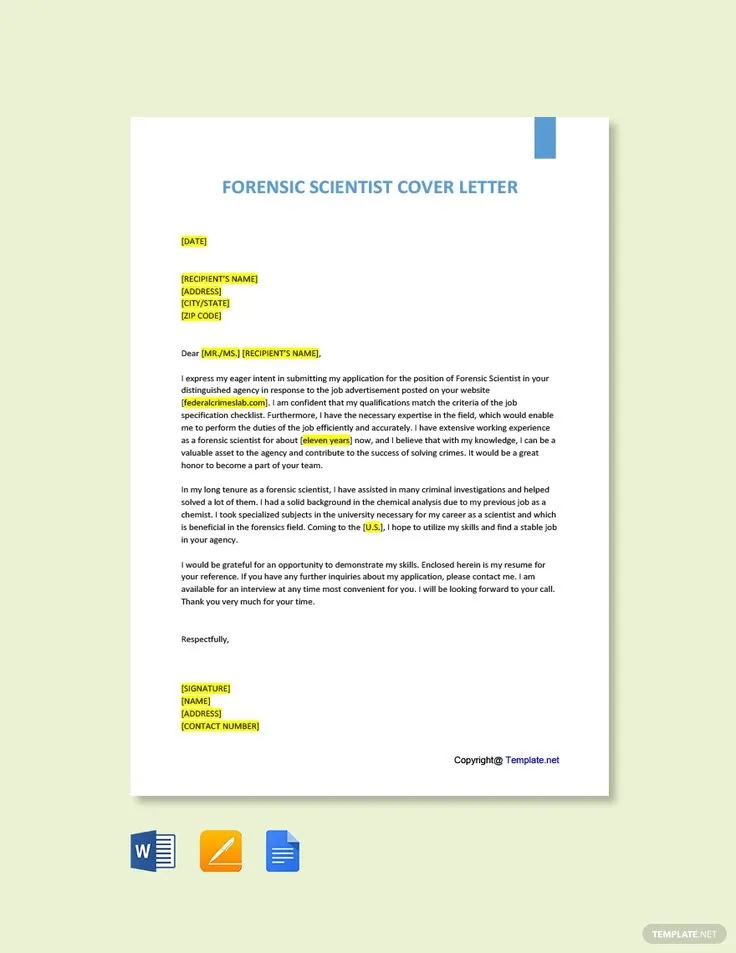Crafting an Entry-Level Forensic Scientist Cover Letter
Embarking on your career as an entry-level forensic scientist requires a compelling cover letter. This vital document is your initial point of contact with prospective employers, and it provides an opportunity to showcase your distinctive qualifications, enthusiasm, and suitability for the position. A well-structured cover letter is not merely a formality; it is a critical tool designed to significantly improve your chances of securing an interview. It allows you to expand on the details provided in your resume, adding depth and personality to your qualifications. This guide provides the secrets to crafting a cover letter that captures attention and clearly demonstrates your potential as a forensic scientist. The most effective approach is to tailor your letter to align perfectly with the specific job requirements. Doing so creates a strong foundation for your application, making a memorable first impression and differentiating you from other applicants.
Understanding the Importance of a Cover Letter
The importance of a well-crafted cover letter in the job application process cannot be overstated. It’s your initial introduction to the hiring manager, where you can express your genuine interest in the role and present a narrative that supports your resume. A strong cover letter not only highlights your skills but also demonstrates your comprehension of the role and the organization. It proves that you have dedicated time to researching the position, indicating your genuine interest in joining the team. Furthermore, a cover letter allows you to address any potential gaps in your resume, such as a lack of extensive experience, by explaining how your transferable skills and previous experiences are applicable to the job. It is your chance to share a story, connect with the reader on a personal level, and create a lasting first impression. By emphasizing your personality, connecting with the hiring manager, and articulating why you’re the ideal candidate, you can leave a lasting positive impression.
Highlighting Relevant Skills for the Role
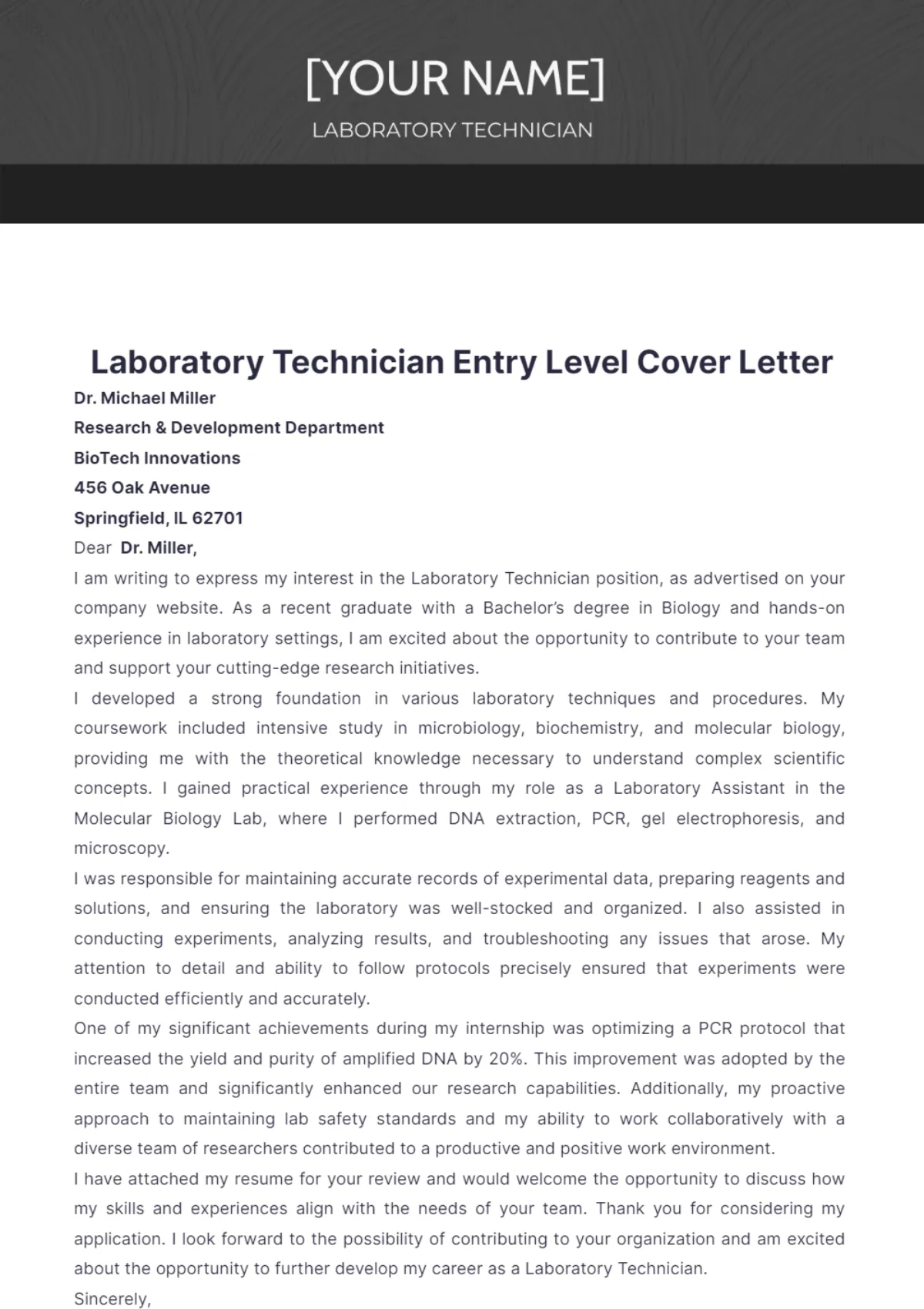
When writing your cover letter, it is crucial to emphasize the skills most relevant to an entry-level forensic scientist position. Analyze the key responsibilities described in the job description and identify the skills that align with those requirements. These skills may include analytical thinking, meticulous attention to detail, effective problem-solving abilities, and the capacity to excel independently and as part of a cohesive team. Emphasize your proficiency in laboratory techniques, data analysis, and your ability to interpret results accurately. Showcase your understanding of forensic principles, scientific methodologies, and ethical considerations. Use specific examples from your academic projects, internships, or volunteer experiences to illustrate your real-world application of these skills. When possible, quantify your achievements; for instance, specify the number of samples you have analyzed or any efficiency improvements you have implemented. Using keywords from the job description will help your cover letter get past Applicant Tracking Systems (ATS) to the hiring managers.
Emphasizing Education and Training
Your educational background and training are foundational to your application as an entry-level forensic scientist. In your cover letter, clearly state your degree(s) and any related specializations, such as forensic biology, chemistry, or digital forensics. Mention the institution(s) where you obtained your education and include the dates of your studies. Highlight any coursework relevant to the job requirements, such as courses in DNA analysis, toxicology, or trace evidence examination. Detail any training programs, workshops, or certifications you’ve completed, particularly those related to forensic science practices or laboratory procedures. If you participated in research projects, provide a brief overview of your role and the outcomes. This shows your commitment to ongoing learning and your ability to remain updated on advancements within the field. Also, mention any specific skills gained during your education, such as experience with particular software or instrumentation. Always include any certifications or specialized training that enhances your candidacy.
Detailing Laboratory Experience
Laboratory experience is highly valuable in the forensic science field. Whether gained through internships, volunteer work, or academic lab settings, be sure to describe your experience in your cover letter. Explain the types of analyses you performed, such as DNA extraction, PCR amplification, or chromatography. Mention the instruments and equipment you’re familiar with, including microscopes, spectrometers, and other specialized tools. Highlight your proficiency in following standard operating procedures (SOPs), maintaining accurate records, and ensuring data integrity. Emphasize your understanding of laboratory safety protocols and your commitment to maintaining a clean and organized work environment. If you have experience with quality control procedures or proficiency testing, make sure to mention it, as this is a significant asset for any forensic laboratory. Your hands-on experience provides a clear demonstration that you are prepared to use your knowledge effectively in a professional setting.
Demonstrating Strong Analytical Abilities
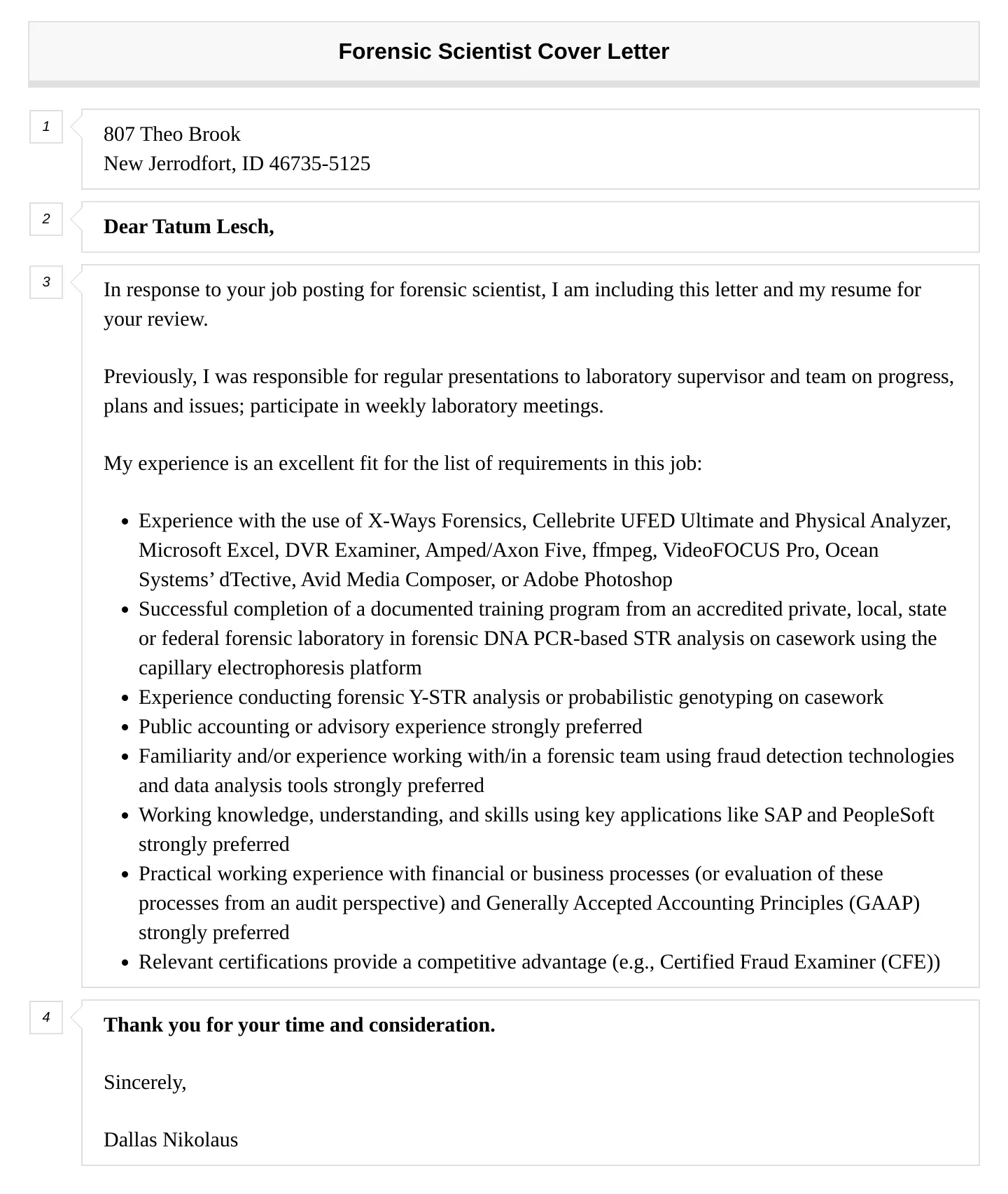
Forensic science heavily depends on strong analytical skills, which are essential for interpreting evidence, drawing accurate conclusions, and supporting investigations. In your cover letter, demonstrate your analytical abilities by providing examples of how you’ve used critical thinking to solve problems or interpret data. Discuss your experience in analyzing complex information, identifying patterns, and drawing logical inferences. Mention any software or techniques you’re proficient in, such as statistical analysis, data visualization, or image analysis. Highlight your ability to identify and evaluate potential biases or limitations in the evidence. Provide specific examples of how you’ve applied analytical skills in your academic projects, research, or previous roles. For instance, describe a situation where you analyzed a data set, found an anomaly, and proposed a solution. Emphasize your ability to work methodically, paying close attention to detail and ensuring accuracy in your analyses. Highlighting your analytical skills is a critical factor when applying for any role.
Showcasing Communication and Teamwork Skills
Effective communication and teamwork are vital skills for a forensic scientist. Your cover letter should highlight your ability to communicate clearly and concisely, both verbally and in writing. Give examples of how you’ve presented complex scientific information to diverse audiences, such as in lab reports, presentations, or publications. Highlight your experience working as part of a team, including your ability to collaborate with colleagues, share information, and contribute to a shared goal. Mention any leadership roles you’ve held and describe how you’ve motivated or guided others. Emphasize your ability to listen actively, resolve conflicts, and provide constructive feedback. Discuss your experience with interviewing witnesses, writing reports, or providing expert testimony. These communication skills are vital, especially in court settings. Your ability to work well with others, showcasing your interpersonal skills, is a crucial aspect of a forensic scientist’s role. Clearly highlighting strong teamwork and communication skills will greatly enhance your presentation to potential employers.
Tailoring Your Cover Letter to the Job
One of the most effective secrets for creating a successful cover letter is tailoring it to the specific job you’re applying for. Generic cover letters are often perceived as impersonal and may lead to your application being overlooked. Before you start writing, carefully read the job description and identify the key requirements, skills, and qualifications that the employer is seeking. Then, customize your cover letter to directly address these specific needs. Highlight the skills and experiences that most closely align with the job requirements, providing concrete examples of how you’ve demonstrated them in the past. Incorporate the same keywords and phrases used in the job description. This shows you’ve invested time in understanding the role and possess the necessary qualifications for success. Illustrate your understanding of the employer’s mission, values, and goals, explaining how your skills and experiences can contribute to their objectives. Showing how your skills match the role’s requirements through research will prove advantageous.
Researching the Employer and the Role
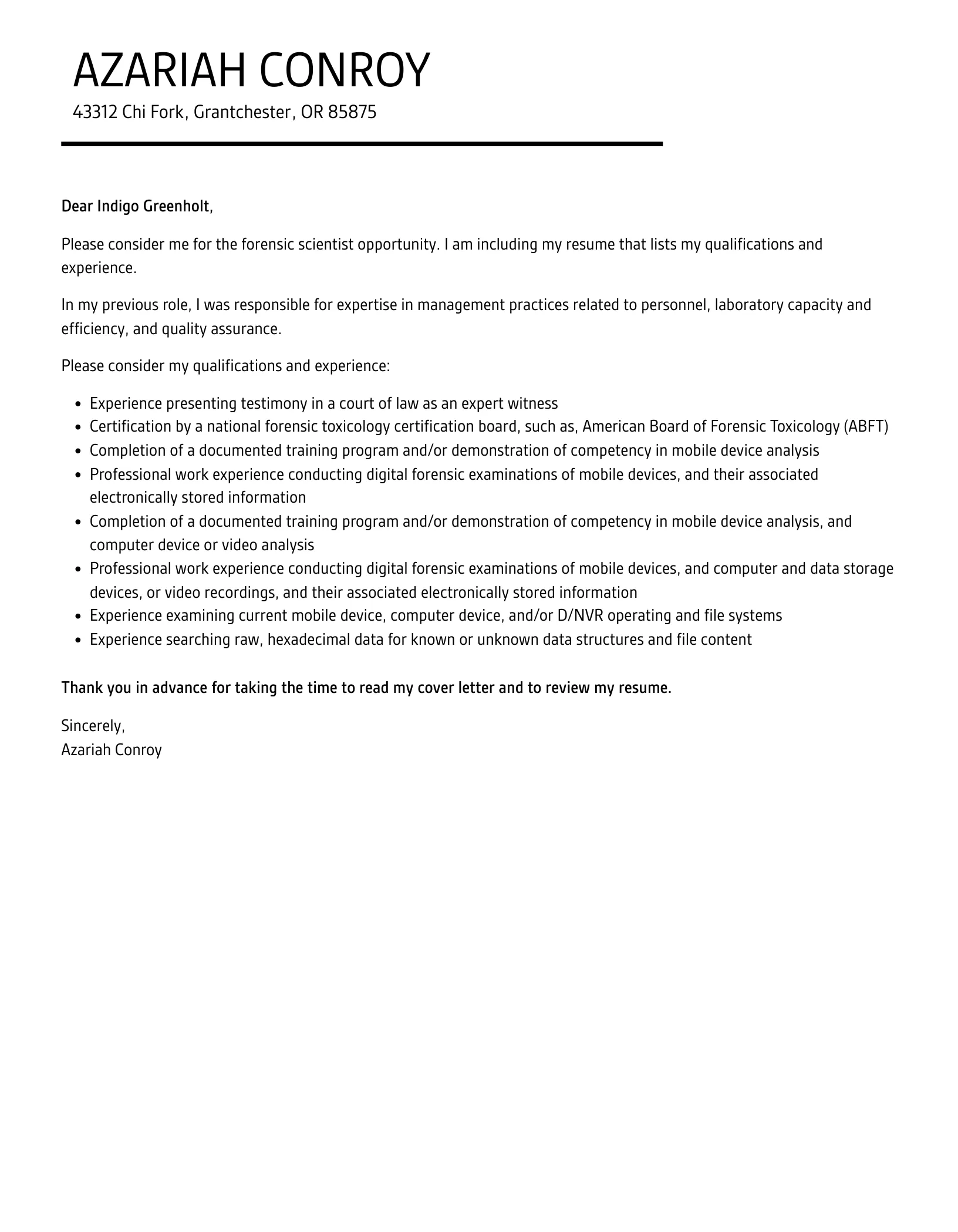
Thorough research is a key element in a cover letter that stands out. Before you begin writing, dedicate time to researching the employer and the specific role you are targeting. Explore the organization’s website to understand its mission, values, and recent accomplishments. Conduct searches on professional networking platforms to gain insights into the company culture and the individuals employed there. If feasible, research the hiring manager or the team you would be joining to understand their backgrounds and interests. Learn as much as possible about the role itself, including the specific responsibilities, essential skills, and reporting structure. This information will help you customize your cover letter to meet the employer’s needs and show your genuine interest in the position. It also helps you identify any specific needs or challenges the employer is facing and how you can help in their success. Tailoring your cover letter to include your knowledge and how it relates to the specific company is essential. This demonstrates preparation and a proactive approach.
Using Action Verbs to Describe Your Achievements
To make your cover letter more engaging, incorporate action verbs when describing your achievements and skills. Action verbs infuse energy into your writing and demonstrate your accomplishments more effectively than passive language. Rather than saying, “I was responsible for analyzing data,” use “I analyzed data.” Instead of saying, “I assisted in laboratory experiments,” use “I conducted laboratory experiments.” Start sentences with powerful action verbs such as “analyzed,” “conducted,” “developed,” “managed,” “implemented,” or “achieved.” This method makes your cover letter dynamic and engaging. Use the STAR method (Situation, Task, Action, Result) to provide context to your achievements and showcase the impact of your contributions. For instance, “Managed a team of four technicians, resulting in a 15% increase in efficiency.” or “Analyzed 50+ samples with no errors.” This shows readers the value you offer.
Proofreading and Editing Your Cover Letter
Before submitting your cover letter, thoroughly proofread and edit it to ensure it is free of errors. Errors in grammar, spelling, or punctuation can undermine your credibility and negatively impact your application. Use a grammar checker, such as Grammarly, and carefully check each sentence for clarity and accuracy. Read your cover letter aloud to catch any awkward phrasing or inconsistencies. Ask a friend, family member, or career advisor to review your cover letter and offer feedback. Pay close attention to the tone, style, and formatting of your cover letter. Ensure that it’s professional and polished, and that it reflects your attention to detail. Confirm the accuracy of your contact information and that you have included all required details. A well-proofread cover letter indicates your professionalism and attention to detail—essential qualities for any forensic scientist. Always ensure that your application is flawless before submission.
Formatting Your Cover Letter for Readability
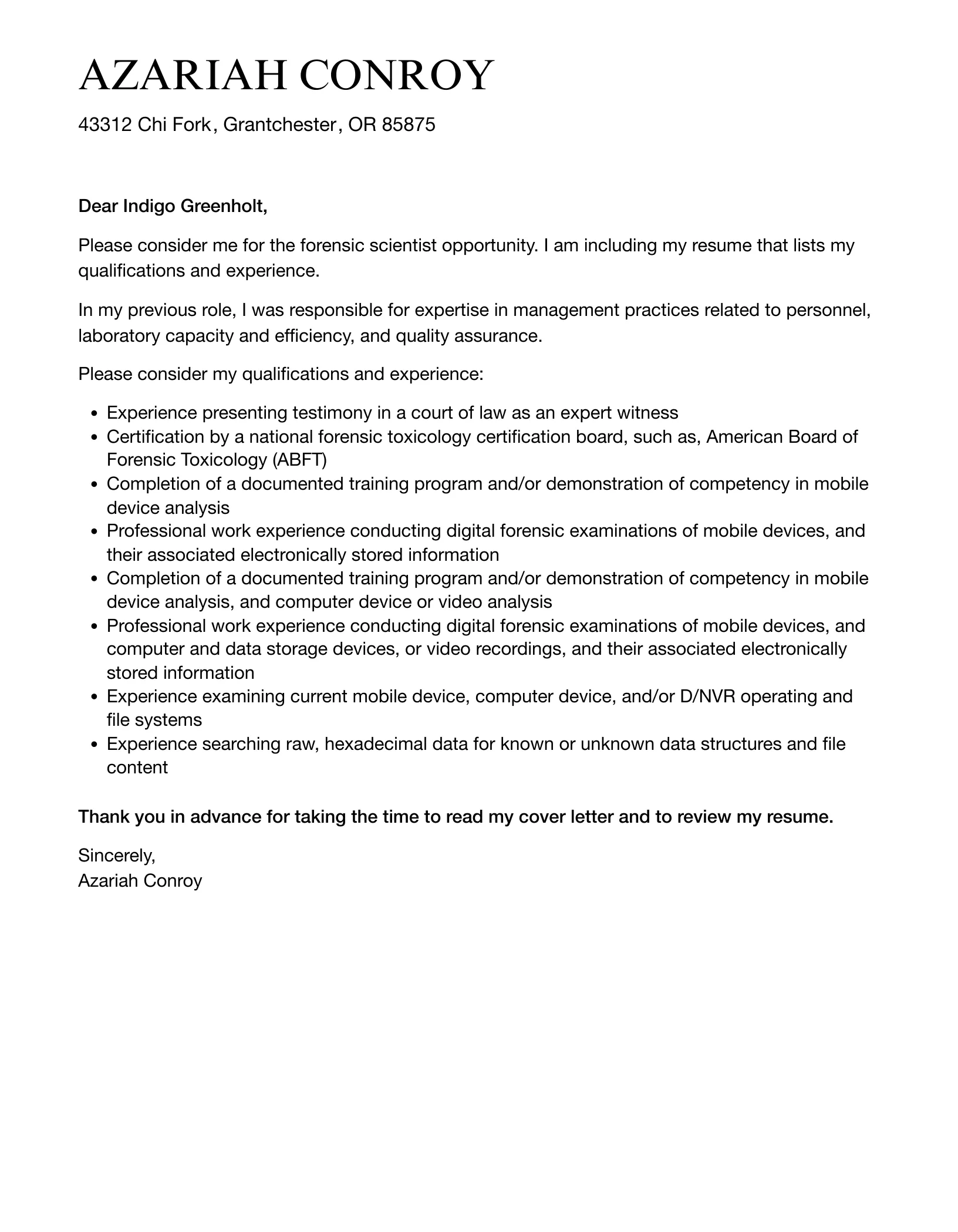
The formatting of your cover letter significantly affects its readability and overall impact. Use a professional, easy-to-read font like Times New Roman, Arial, or Calibri. Keep your font size consistent, generally between 10 and 12 points. Employ clear headings and subheadings to break up the content, making it easier to scan. Utilize bullet points to highlight key skills and achievements. Maintain consistent margins and spacing throughout your cover letter. Avoid excessive formatting or distracting design elements. Aim to keep your cover letter to a single page; excessively long letters can deter hiring managers. Ensure your contact information, including your name, address, phone number, and email, is prominently displayed at the top. Use a professional and formal tone, tailoring your writing to the specific job. Make certain the formatting is consistent throughout, and that the document is easy to navigate. Proper formatting will help the reader easily get through your letter and allows them to focus on your skills.
Keywords to Include in Your Cover Letter
To ensure your cover letter captures the attention of Applicant Tracking Systems (ATS) and hiring managers, incorporating relevant keywords is essential. Begin by meticulously reviewing the job description, identifying the key skills, qualifications, and responsibilities. Include these keywords naturally throughout your cover letter, especially within the skills section and when detailing your experiences. Consider using a variety of synonyms and related terms to maximize the chances of your cover letter being recognized by ATS algorithms. For example, if the job description mentions “DNA analysis,” include terms like “DNA profiling,” “genetic analysis,” and “molecular biology techniques.” Do not merely list keywords; instead, weave them seamlessly into the context of your skills and achievements. For instance, instead of stating “Experienced in PCR,” you might say, “Proficient in polymerase chain reaction (PCR) for DNA amplification and analysis.” This strategy demonstrates your comprehension of the terminology and its relevance to the job. By strategically including relevant keywords, you increase the likelihood that your cover letter will be seen by a hiring manager and that your application will be successful. Including relevant keywords will help ATS systems identify your cover letter and recommend you to the hiring manager.
